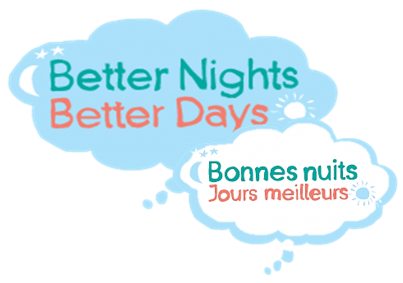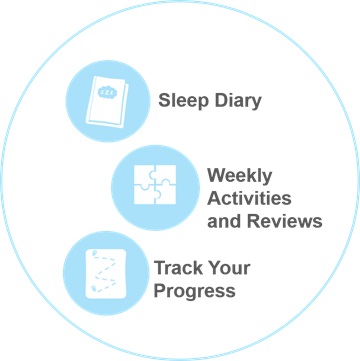 Better Nights, Better Days
Better Nights, Better Days
for Children with Epilepsy
The Program
Modifications have been made to the original Better Nights, Better Days program to support families of children aged 4-10 with epilepsy. Information has been integrated to help improve parents’ sleep as well as their child’s. All eligible participants will receive access to the program.
|
Epilepsy Pre-Session: Gain an understanding of the relationship between epilepsy and insomnia, and anti-epileptic medications and sleep. |
|
|
|
Session 1: Introduction Introduction to the program and information about how sleep works and how sleep problems develop. Information for parents about adult characteristics of sleep; how sleep problems develop in adults, and a link to download an adult Sleep Diary from the National Sleep Foundation.
|
|
|
Session 2: Healthy Sleep Practices Learn about healthy sleep practices and routines, and how doing things differently during the day and at night can help your child sleep better. Includes prompts for parents to consider the influence of factors on their own sleep, including their own sleep schedules, bedtime routines, sleep location, use of electronics before bed, exercise and diet, positivity, and sleep associations.
|
|
|
Session 3: Settling to Sleep Focus on problems settling to sleep independently at naptime and at bedtime. Includes evidence-based strategies recommended for adults on improving their ability to fall asleep.
|
|
|
Session 4: Going Back to Sleep Focus on using tools to help with night-wakings and what to do if your child wakes too early in the morning. Includes evidence-based strategies recommended for adults to manage to night wakings, napping, and early morning awakenings.
|
|
|
Session 5: Looking Back and Ahead Review your goals and progress you’ve made during the program, and develop a plan for the future. Includes descriptions of other sleep problems that adults may experience and guidance for when adults should contact their healthcare provider for assessment and treatment. |
 Better Nights, Better Days
Better Nights, Better Days Program Tools
Program Tools
|
Sleep Diary Fill out a daily online sleep diary to track your results and see patterns in your child’s sleep and behaviour as you complete the sessions. Weekly Activities and Reviews Complete activities that will help you make positive changes to improve your child’s sleep. For instance, learn how to create sleep routines, a healthy sleep environment, and practice techniques to reduce stress. Track Your Progress Throughout the program, you'll receive feedback on the positive changes that you're making to your child's sleep. |
|

